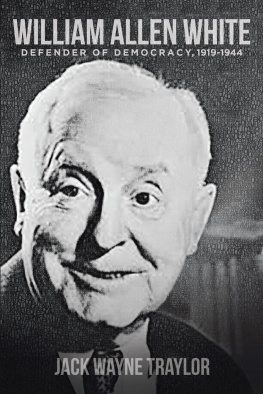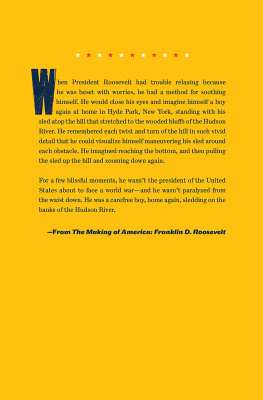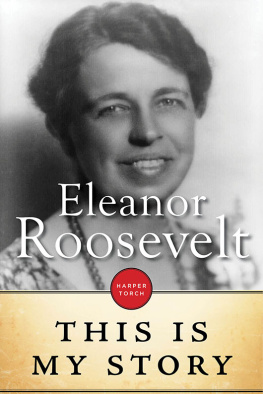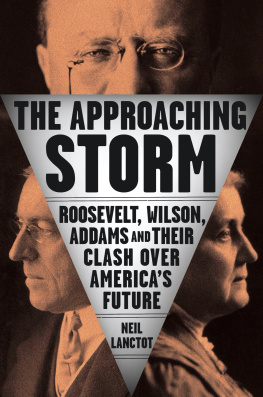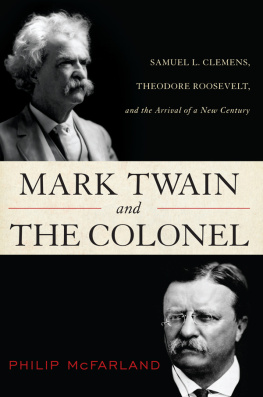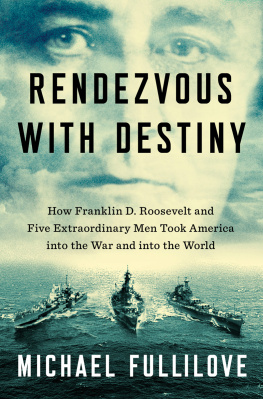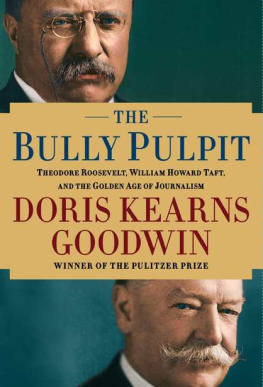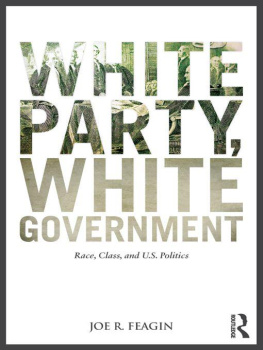Preface
As a native of Emporia, Kansas, born there in 1946less than three years after the death, in that town, of its most famous citizen, William Allen WhiteI grew up amidst all things White. There was the White home at 927 Exchange StreetRed Rocks as it was and is known, for its Colorado-quarried stone exteriorhome of WAW and his family during most of his life and, subsequently, the home of his son William Lindsay White and his wife Katherine. There was the nearby William Allen White elementary school, Peter Pan Parka memorial to William Allens late daughter Mary Whiteand eventually William Allen White Memorial Drive and the William Allen White Memorial Library at Kansas State Teachers College (now Emporia State University). A William Allen White Childrens Book Award was established in 1952 at the Teachers College as it was known then and continues to be awarded annually at Emporia State. And there was the Emporia Gazette, after WAWs death in 1944 under the publishing tutelage of William Lindsay White (known locally into his seventies as young Bill), though by this time he was a nationally-renowned war correspondent and journalist, and he and his wife spent much of their time in New York.
Familiarity sometimes breeds contempt as the saying goes, but it never did with me, although perhaps there was a note of complacency toward WAW in my thinking. His legacy was everywhere around me in my childhood. It seemed as if everyone had a William Allen White story or memory, and nearly all were good. For a very famous man, White seemed to be almost universally revered in his home town. Jesus stated as recorded in Matthew 13:57 and Luke 4:24-27 that a prophet is not without honor except in his own country. This seems to have applied less to White than most famous people.
My dad, the late Wayne B. Traylor, had as his most vivid memory one that was not directly related to WAW, but to Mary. As a boy, several years younger than Mary, (he lived on North Merchant Street near where she had her fatal accident in 1921), he remembered coming upon her lifeless body with some other boys, just after she had been knocked from her horse. Her death led her father to write perhaps his most famous essay, Mary White. For my mother, the late Gladys Needels Traylor, her memory was less dramatic but more directly related to WAW himself. She remembered his kindness when she sold him a war bond during World War II.
As the years passed, I continued my somewhat casual interest in the Whites, both WAW and WLW, although as I developed a more focused political interest, my views corresponded much more closely to those of the former. I eventually went on to earn a degree in history from the College of Emporia (now defunct), where WAW had attended and throughout his life revered highly. As a graduate student at what was then still known as Kansas State Teachers College, I wrote my masters thesis in the history department on Emporia during the Great Depression of the 1930s, and part of my research involved a personal interview with William Lindsay White at the Gazette office. Of course, WAW and his written views of the period figured prominently in my narrative and analyses.
It was not until I went on to pursue graduate study in history at the University of Oklahoma in the 1970s, that I began to take a much more serious look at the career and thought, and his place in the American history of the first half of the twentieth century, of William Allen White. My focus on the history of the American West and twentieth century America in graduate school, seemed to blend well with my study of White. As I began to attempt to look at everything he had written, what struck me was the period of the last twenty-five years of his life1919 to 1944when his recurring theme was defense of democracy, broadly conceived (he called it Christianity institutionalized), amid a country and a world, particularly by the 1930s, that was increasingly hostile to democracy, both political and economic.
Sadly, when I attempted to publish my work near the conclusion of the 1970s, I found little interest. The director of one prominent university press that often published books of Kansas history even told me, No one is interested in William Allen White anymore. Yet my interest in his life and thought continued. As time passed, I noticed that at some point at least, there was developing a renewed recognition of him. Indeed, in spite of that directors grim pronouncement, new books about White began to be published in the 1980s and beyond. And yet, none to this day have focused on the last quarter century of his life and his defense of democracy in a world order that seemed increasingly hostile to it. Nevertheless, some very good studies of various aspects of his life and how it related to the national and world scene, have appeared in recent years.
The first of these was written by Eastern Michigan University professor of English language and literature, E. Jay Jernigan. Published in 1983 as part of the Twaynes US authors series and titled simply William Allen White , it not surprisingly, given the authors credentials, focused on a description and analysis of Whites written works over the years. It provides a good summary of the relationship between Whites life and career and his published works.
Next appeared Home Town News: William Allen White & the Emporia Gazette , by Sally Foreman Griffith, then Associate Professor of History at Villanova University. Published in 1989, covering the years from Whites purchase of the Gazette in 1895 to just after World War I, it provides a detailed analysis of Whites contributions to the development of the newspaper industry in the early twentieth century.
While not a biography of WAW, Professor Jernigan published William Lindsay White, 1900-1973: In the Shadow of His Father , in 1997. Even though it is not a WAW biography per se , it is a detailed analysis of his son and provides a fascinating look at the relationship, not always harmonious, between the two, as well as a look at WLWs relationship to Emporia, again not always harmonious. For a serious student of WAW, it should be regarded as a must read.
Perhaps the most analytical recent biography of William Allen White came in 1998 with the publication of Edward Gale Agrans Too Good a Town: William Allen White, Community, and the Emerging Rhetoric of Middle America. It covers the entirety of Whites career and focuses on his representation of a spokesman for middle America, the middle class, small towns, and the values that were important for their development in the first half of the twentieth century.
Although not a scholarly study, of note is the illustrated tribute to the life of WAW daughter Mary White, A Prairie Peter Pan: The Story of Mary White. Written by Beverley Olson Buller, it contains significant background information on the person who, for two decades, provided a pivotal personal relationship to WAW.
All of these publications offer important looks further into the life of William Allen White but still do not answer fully the question of why, in the 1920s, 1930s, and early 1940s, he was an important household name in American life. The following study will attempt to provide a clearer explanation of this.

